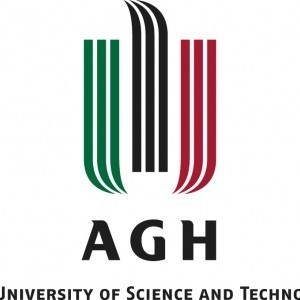Photos of university / #unibirmingham
The MSc in Hydrogen, Fuel Cells and Their Applications with Integrated Study at the University of Birmingham offers a comprehensive postgraduate education focused on the development and application of hydrogen and fuel cell technologies. This programme is designed to equip students with both the theoretical understanding and practical skills necessary to address the global challenges of sustainable energy and clean transportation. Throughout the course, students will explore the fundamental principles of hydrogen production, storage, and utilization, as well as the engineering and materials involved in fuel cell technology. The curriculum integrates core subjects in renewable energy systems, electrochemistry, and innovative energy conversion methods, providing a multidisciplinary perspective essential for advancing the field.
The programme emphasizes practical training through laboratory sessions, industry collaborations, and project work, enabling students to develop hands-on experience with state-of-the-art fuel cell systems and associated technologies. Students will have the opportunity to engage in research projects that contribute to the development of efficient, affordable, and environmentally friendly energy solutions. The course is structured to prepare graduates for careers in research, development, and deployment of hydrogen and fuel cell technologies across various sectors, including automotive, aerospace, and energy production.
The University of Birmingham’s strong links with industry partners and research institutions ensure that students gain exposure to the latest innovations and real-world applications. The programme also includes an integrated study component, which provides students with broader insights into sustainability, policy frameworks, and commercial aspects related to clean energy technologies. Upon completion, graduates will possess the knowledge and skills needed to contribute effectively to the rapidly evolving fields of hydrogen energy and fuel cell applications, making a significant impact in efforts to transition towards a sustainable and low-carbon future.
The MSc Hydrogen, Fuel Cells and Their Applications with Integrated Study at the University of Birmingham offers a comprehensive curriculum designed to equip students with the knowledge and practical skills needed to excel in the rapidly growing field of renewable energy and sustainable transportation. This program provides an in-depth understanding of the fundamental principles behind hydrogen energy systems, fuel cell technologies, and their applications across various industries. Students will explore the scientific and engineering aspects of hydrogen production, storage, and distribution, as well as the design, operation, and maintenance of fuel cell systems.
The course places a strong emphasis on research and innovation, encouraging students to engage with current challenges and emerging solutions within the energy sector. Through a combination of theoretical lectures, laboratory experiments, and industrial case studies, students gain experiential learning that enhances their technical proficiency. The integrated study component involves placements, internships, or collaborative projects with industry partners, fostering real-world experience and professional development.
Core modules include thermodynamics and electrochemistry, fuel cell and hydrogen technologies, renewable energy systems, and energy policy and economics. Students also have the opportunity to specialize in advanced topics such as system integration, materials science for fuel cells, and zero-emission vehicle technologies. The program is designed to prepare graduates for careers in energy consultancy, research and development, manufacturing, and policy-making within the renewable energy sector.
With access to state-of-the-art laboratories and research facilities, students are encouraged to undertake innovative projects that can contribute to the advancement of hydrogen and fuel cell technologies. The University of Birmingham’s strong links with industry ensure that students are well-positioned to enter the workforce with relevant experience and a solid network of professional contacts.
Graduates of the MSc Hydrogen, Fuel Cells and Their Applications with Integrated Study will be equipped to drive the transition toward cleaner, more sustainable energy sources worldwide. The program’s interdisciplinary approach combines engineering, science, and policy, making it ideal for those looking to make a significant impact in the future of energy. Whether you are aiming for a career in research, industry, or policy development, this program provides the necessary foundation and skills to succeed in the evolving energy landscape.
Entry requirements typically include a relevant undergraduate degree in engineering, physics, or a related technical discipline, with a strong academic record. Applicants might be required to demonstrate proficiency in English language, such as IELTS or TOEFL scores, if applicable. The program may also prefer candidates with prior knowledge or experience in renewable energy, sustainable technologies, or chemical sciences, although this is not always mandatory. In addition, personal statements or references could be part of the application process, showcasing motivation and relevant skills. The University of Birmingham often emphasizes a commitment to innovation, research capabilities, and practical problem-solving skills, so applicants with a background in research projects or industry experience in fuel cell technology and hydrogen applications can have an advantage. The program might also be open to applicants with mature students or those with relevant professional experience, provided they can demonstrate the necessary foundational knowledge. For international students, additional documentation such as passport copies and possibly visa arrangements are required. It is essential for applicants to meet the specific entry thresholds, which could include a minimum GPA or equivalent academic qualification, and to submit all required documentation by the application deadlines. The university looks for candidates with a passion for sustainable energy solutions and a strong desire to contribute to advancements in hydrogen and fuel cell technology. Overall, the requirements aim to ensure that entrants possess the foundational knowledge and motivation necessary to succeed in this advanced interdisciplinary program.
The University of Birmingham offers a range of financing options to support students undertaking the degree programme in Hydrogen, Fuel Cells and Their Applications with Integrated Study. Prospective students are encouraged to explore various funding sources to assist with tuition fees and living expenses throughout the duration of their studies. The university provides detailed information about scholarships, bursaries, and grants available to both domestic and international students, aimed at recognizing academic excellence and supporting financial needs. The university also participates in national loan schemes, such as the Student Loans Company, which facilitates access to loans for eligible students to cover tuition and maintenance costs. Additionally, several external funding opportunities are accessible, including industry-sponsored scholarships and government-sponsored grants, which can significantly reduce the financial burden of higher education. Students are advised to consult the university’s dedicated financial support webpage to find specific eligibility criteria, application procedures, and deadlines for each funding option. Furthermore, the university offers guidance and advice services to help students navigate the complex landscape of financial planning and funding applications. Fees vary depending on the student's residence status and specific course components, but generally, tuition fees are set annually and may increase in subsequent years. International students might also consider external scholarships offered by government agencies or private organizations in their home country. The university promotes transparent communication regarding all costs associated with the programme, ensuring students are well-informed prior to enrollment. For those requiring more tailored financial planning, the university’s financial advisors provide personalized assistance to develop manageable payment plans. Overall, the University of Birmingham is committed to making higher education accessible by providing comprehensive financial support options for students enrolled in the Hydrogen, Fuel Cells and Their Applications with Integrated Study programme, thereby enabling talented individuals from diverse backgrounds to pursue their academic and career ambitions in the field of sustainable energy technologies.
The MSc in Hydrogen, Fuel Cells and Their Applications with Integrated Study at the University of Birmingham is a specialized postgraduate program designed to equip students with comprehensive knowledge and practical skills in the emerging field of hydrogen energy and fuel cell technology. This course combines theoretical understanding with hands-on experience, preparing graduates for careers in clean energy, sustainable transportation, and advanced manufacturing sectors. The program covers fundamental principles of hydrogen production, storage, and utilization, alongside detailed studies of fuel cell operation, types, and applications. Emphasis is placed on the engineering design, environmental impact, and economic considerations of hydrogen and fuel cell systems.
Students will engage with cutting-edge research topics and learn about innovative solutions to global energy challenges. The curriculum integrates modules on renewable energy integration, system analysis, and the development of fuel cell technologies, ensuring graduates are prepared for technical, research, and industry roles. The program also offers opportunities for industrial placements and collaborative projects, fostering practical experience and professional networking. The University of Birmingham boasts state-of-the-art laboratories and research facilities, supporting project work and experimental learning.
Graduates of this program will be well-positioned for employment in sectors such as energy consultancy, manufacturing of fuel cell components, renewable energy project development, and government policy advisory roles related to sustainable energy. The program is suitable for students with backgrounds in engineering, physics, chemistry, and environmental sciences who aim to specialize in clean energy technologies. Overall, this MSc aims to contribute to the development of a skilled workforce capable of advancing hydrogen and fuel cell applications worldwide, aligned with global decarbonization goals.









